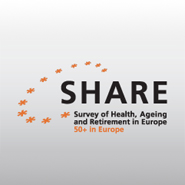Posted 23 October 2008
SHARE study prepares for population ageing landslide
Faced with the dramatic ageing of population over the coming decades, which will impose a major financial burden on public pension and health service provision, the EU Commission and the US National Institute for Ageing, alongside other national research funding agencies, have established a pan European, multi-disciplinary investigation of the over 50s.
The Survey of Health, Ageing and Retirement in Europe (SHARE) is expected to provide information and data that can accurately identify the differences and similarities in the ageing process across Europe. Using the information, policy makers will be able to evaluate the effects of similar interventions across different EU member states.
The results of the first wave of the Irish section of SHARE were announced at University College Dublin on 20 October 2008. The study, conducted by researchers at the UCD Geary Institute and the Centre for Social Gerontology at NUI Galway, included information on health and well-being, the use of health services, financial circumstances, and social engagement.
“According to the data, approximately 60% of people aged 50-59 rated their health as excellent or very good. A figure which reduced to 30% for those aged over 80 years,” says Professor Colm Harmon from the UCD Geary Institute. “Arthritis, hypertension and high cholesterol were reported as the most prevalent diseases for all people aged 50 and over.”
“Hypertension was identified as the most common illness for both men and women in this age group, with nearly 30% of both genders suffering from the condition. Over 25% of men and women reported suffering from high cholesterol. Both Arthritis and Osteoporosis showed to be more common among women than men at 25% to 16% and 9% to 1% respectively. On the other hand, 10% of men were reported to have suffered a heart attack as compared to 5% of women.”
According to Professor Harmon, economists view health as a capital stock which has been accumulated over time. Therefore, the survey included questions on behavioural health risks like smoking, alcohol consumption, and vigorous and moderate physical activity.
“About 20% of all people aged over 50 were shown to be current smokers and regular drinkers of alcohol. And about 40% of men and 50% of women never undertook vigorous activities, while approximately 10% never engaged in moderate activities.”
The first wave of SHARE also included information on health care utilisation which could be used to provide the basis for projections of growth in demand for health care in line with an ageing population, especially as additional waves of the longitudinal survey are completed in the future.
Over 80% of respondents to this study had visited their GP at least once in the last 12 months, and 11% had visited a specialist. For those aged 70-79, approximately 20% had at least one recent overnight inpatient visit. And the proportion of visits for the 80 plus age group is higher for men than women, at over 30%.
In addition to understanding how people’s health changes as they age, SHARE also investigated how individuals funded their consumption of health care. Approximately 50% of GP visits and 30% of nursing home stays were shown to have been entirely paid for by the respondents themselves.
The decision to retire was shown to be largely influenced by four factors: eligibility for public pension, ill health, to spend more time with family, and offered an early retirement option.
SHARE also measured the ability for households of the over 50s to make ends meet. “Approximately 30% of men reported that is was difficult to make ends meet financially, a figure which rose to 40% for women,” says Dr Brenda Gannon, NUI Galway, another of the research investigators.
According to Dr Gannon, financial concerns faced by over 50s women in particular may be partly attributable to the fact that, because they have often spent less time in the labour market, they tend to have built up less pension and other benefits. SHARE is the only research mechanism currently available to help identify this type of issue.
"There are two major realities about ageing which are addressed in this study. One is finance, the other is health," says Dr Liam Delaney, of the UCD School of Public Health and Population Science and the UCD School of Economics, and lead investigator on the SHARE study. "The aim is, at a really early stage, to gear us up for making that shift as our population ages, and how to make the changes to the health services and pensions that we need. If we don't take account of the challenges, we are not going to age successfully as a society.”
SHARE is the largest social science programme in Europe, involving over 200 researchers drawn from disciplines such as economics, epidemiology and public health, sociology and social statistics.
The results of the first and second wave of SHARE (the Survey of Health, Ageing and Retirement in Europe) are available at www.share-project.org which will include the Irish data. The Irish data and a full programme of research on ageing in Ireland is available at http://geary.ucd.ie/share/index.php
The ageing Irish population
Ireland represents somewhat of an exception to the European trend, with its population expected to grow to 6.7 million by 2060. Despite this, Ireland will also face the burdens of an ageing population as the proportion of its population aged over 65 will increase by 59% by 2021, and by a further 142% by 2061 when the ratio of working age people to retired people is expected to have reached 1.8 (Green Paper on Pensions, 2007). Despite recent improvements, in 2006, Ireland still ranked behind 15 other European countries in terms of life expectancy at age 65.

